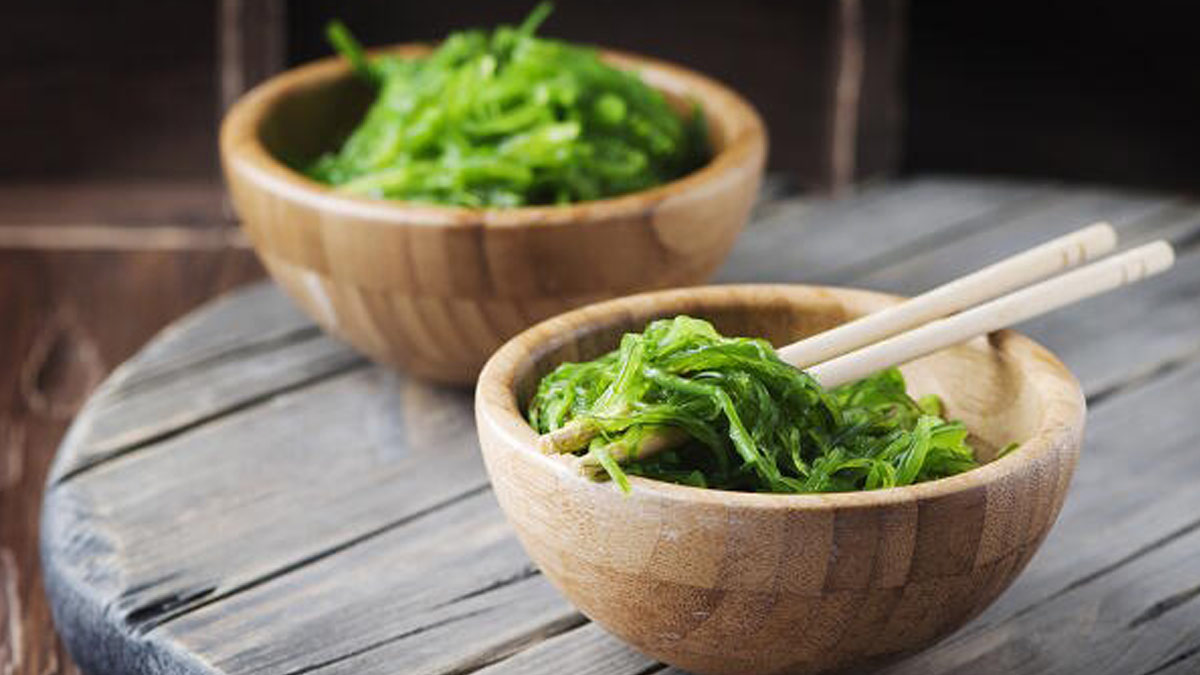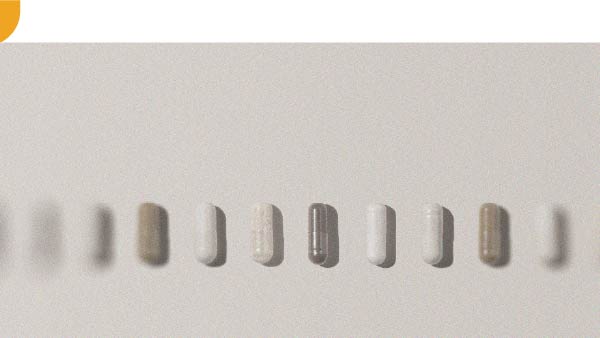10 good reasons to add seaweed to your diet
Our prehistoric ancestors ate seaweed – and they were absolutely right to do so, as it contains undisputed nutritional benefits...

Seaweed is high in protein
Protein is an essential macronutrient (along with carbohydrates and fat), as it plays a structural role in the body (participating in muscle cell production, for example) and is involved in digestive and immune system metabolism; it is also the body’s only source of nitrogen. Seaweed is generally high in protein (though content varies depending on the variety, red seaweed being the richest), making this food a valuable additional source of this essential nutrient. Red seaweed, for example, contains more protein than soya even though the latter is usually regarded as the no. 1 plant protein.
Seaweed is packed with fibre
Seaweed is particularly high in fibre, especially soluble fibre. An average 8 gram portion of seaweed covers up to one-eighth of our daily requirements for fibre. Dried seaweed is even better - up to 50% of its weight consists of fibre. Why is this an advantage? Because fibre affects satiety and therefore helps control weight (by regulating appetite), accelerates food transit, lowers ‘bad’ cholesterol and prevents cardiovascular disease and type 2 diabetes … According to a study published in 2000 in the journal Nutrition Research the fibre in seaweed may be more effective at controlling diabetes and cholesterol than that from other dietary sources.
Seaweed helps keep you trim
Because it’s high in fibre, but very low in calories (around 40-45 per 100g on average) and low in fat, seaweed is a valuable aid to those watching their figures. It expands in the stomach and thus has a hunger-suppressing effect. Another benefit is its gelling properties. For example, as a substitute for gelatin, agar-agar helps produce ultra-light and tasty products (vegetable mousses, fruit jellies …) provided the right dose (4g per litre) is used. And seaweed’s slimming benefits are used in some dietary supplements (Fat & Carb Blocker), designed to aid weight loss.
Seaweed boosts immunity
This is particularly so with brown seaweed because it contains fucoidan. A large number of studies conducted across the globe over several years suggest this polysaccharide may boost the immune system.
Seaweed may prevent some forms of cancer (according to some scientific studies)
Research conducted on rats suggests seaweed may have a protective effect against some types of cancer, particularly hormone-dependent forms such as breast or prostate cancer. Now human studies are needed to confirm these highly promising findings. Another study from 2010 showed that the plant sugar compound fucoidan present in brown seaweed may improve the efficacy of chemotherapy.
Seaweed is chock-full of vitamins
In general, seaweed is packed with vitamins, particularly A, B2, B9 (folic acid), B12 and K. The dulse and nori varieties have the highest vitamin content (except for vitamin K).
Seaweed is generally rich in antioxidants
Seaweed contains carotenoids, vitamins, flavonoids, tannins … So many compounds with proven antioxidant benefits. However, these antioxidant properties vary according to the type of seaweed (colour or depth of colour plays a role), but the absolute ‘must-have’ variety is Ecklonia cava, a brown seaweed highly-prized in Japan and Korea, and the no. 1 choice for antioxidant power.
It’s simple to cook with seaweed
Seaweed is available in two forms: dried or fresh. When dried whole, it needs to be rehydrated (for 5-40 minutes depending on the variety) in a little warm water before use. It can then be easily incorporated into soups, salads, pasta or rice … In dry powder form, it can be sprinkled over salads or added to dishes. If using fresh seaweed, it should be rinsed thoroughly before use. It can then be eaten in salads or cooked al dente or until tender, according to preference. You can then add it to whatever recipe you choose.
There is a wide variety of edible seaweed
Most of us are aware of the nori and wakame types of seaweed which feature prominently in Asian cuisine (nori is used to make maki sushi). But there are many other varieties of edible seaweed available, including here in Europe. Dulse, kombu, sea lettuce, kelp, hijiki, sea spaghetti, spirulina and agar-agar are all types of seaweed that can be consumed either as food or as dietary supplements (to benefit directly from their health properties).
Seaweed is good for the heart
Danish scientist Ole G. Mouritsen maintains that consuming 5-10g of seaweed a day may significantly lower your risk of developing cardiovascular disease. Why? Because it is high in fibre and antioxidants which reduce levels of the ‘bad’ form of cholesterol.
5 Hours
Recomendo
Produtos encomendados são recebidos atempadamente e de acordo com o anunciado! Muito satisfeita!
Carla Sofia
19 Hours
Everything is great!
Everything is great!
Jonas
5 Days
The delivery was fast and the product…
The delivery was fast and the product is great
SOMMARIVA Gianni
6 Days
Great service and lots of information
Great service and lots of information
Gabi
9 Days
Service Satisfaction
I’m satisfied with the service; it fulfilled what it set out to do.
Anfhony Abreu
12 Days
Original product and fast delivery
Original product and fast delivery. I haven't started it yet, but will do soon.
Vincenza Catania
15 Days
Good quality
Good quality. Good service.
Leonel Guzman
17 Days
Top!!!!!!!!
Top!!!!!!!!
Michael
19 Days
Excellent!
Products are great and delivered fast!
PARDINI Debora
20 Days
From order to receive the product
From order to receive the product, the process is smooth & fast. It’s good to customers.
WONG Mei Ling
21 Days
Fast delivery
very quick delivery to italy. product is good.
Customer
22 Days
Prompt delivry !!👍
Prompt delivry !!👍
SWEET Christine
22 Days
Good delivery and flawless quality
AS far as delivery and the visual quality are concerned, Supersmart is excellent. I will not comment on the efficacy of the products themselves, since that is only possible over a longer period and in a large customer base compared to people who do not consume a particular product.
Roger De Backer
23 Days
Perfect services
Perfect services, perfect support, great articles about products
Michaela Alali Beitlová
24 Days
Great experience and effective supplements
I’ve purchased many types of supplements from this company over the course of years to treat a few issues, and I’m satisfied with their quality. After using them consistently for a period of time, I can say they met my expectations and I could feel real health benefits that built up over time. Deliveries are always quick. I recommend this company to anyone looking for high-quality supplements.
Giordano
of experience
your money back
##montant## purchase




